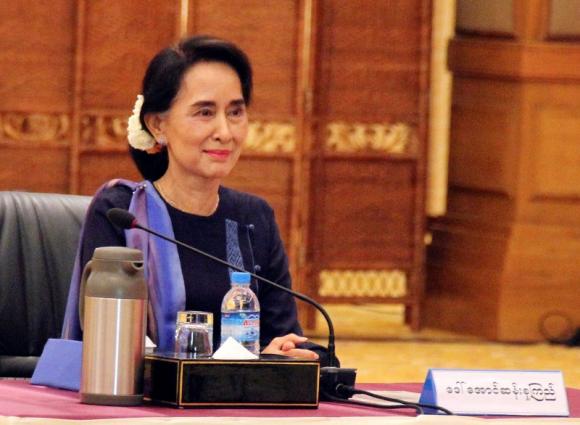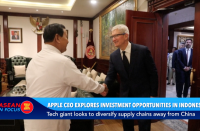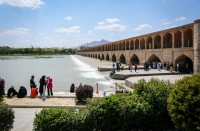
Myanmar opposition leader Aung San Suu Kyi said on Wednesday (November 5) the country’s reform process has stalled. Suu Kyi warned the international community not to be too optimistic, and called on the United States to make a more objective assessment of the reality in Myanmar.
Speaking at a news conference at the National League for Democracy (NLD) headquarters in the capital of Yangon, Suu Kyi said she believes the U.S. and other western countries are serious about wanting to help reforms in Myanmar progress.
Last week Suu Kyi met with political leaders, including President Thein Sein. She says the meeting should not be considered a breakthrough.
“I don’t think the reform process is going forward. I don’t think we’re going backward yet, but certainly I think it has stalled for the time being. That’s one of the reasons why I say that last week’s meeting is not a breakthrough, because I do not see it as taking forward the reform process in a meaningful way,” Suu Kyi said.
She added that the U.S. and other countries have been too optimistic about the reforms.
“I’ve often said that we help this process not by hoping and wishing for a happy ending, but by recognising the situation for what it is really, and by deciding what needs to be done in order to promote the genuine democratisation in this country.”
“I hope that not just the United States, but all other nations, will be aware of this need to assess the situation hard-headedly and not be over optimistic,” she added.
Myanmar’s military leaders moved to end the country’s pariah status in 2011 by lifting restrictions on political opponents and releasing political prisoners, a move the Obama administration saw as an important political victory for the administration.
However, the government has failed to curb tensions between majority Buddhists and Rohingya Muslims and the military is frequently accused of torture and rape in ethnic areas where rebel groups continue to fight for autonomy. Over the past year, a crackdown on the media has seen the arrest of at least 16 journalists.
The back-sliding has raised the stakes for President Obama as he prepares to visit Myanmar next week for a regional summit and will meet Myanmar’s leaders and 69-year-old democracy champion Suu Kyi.







